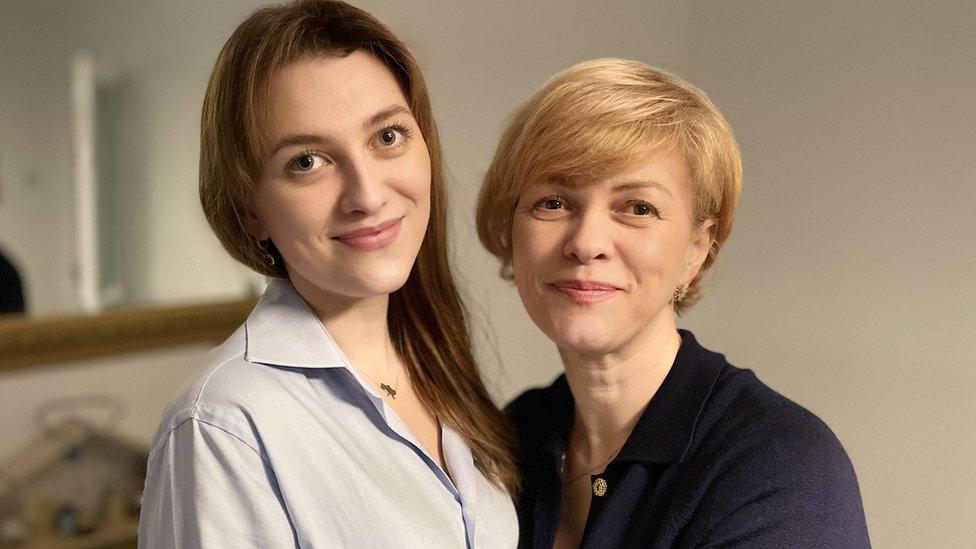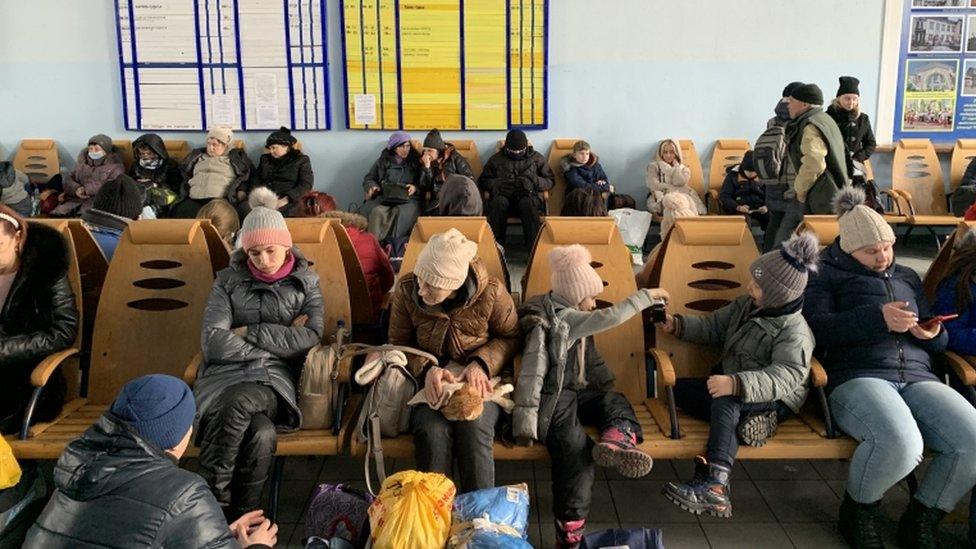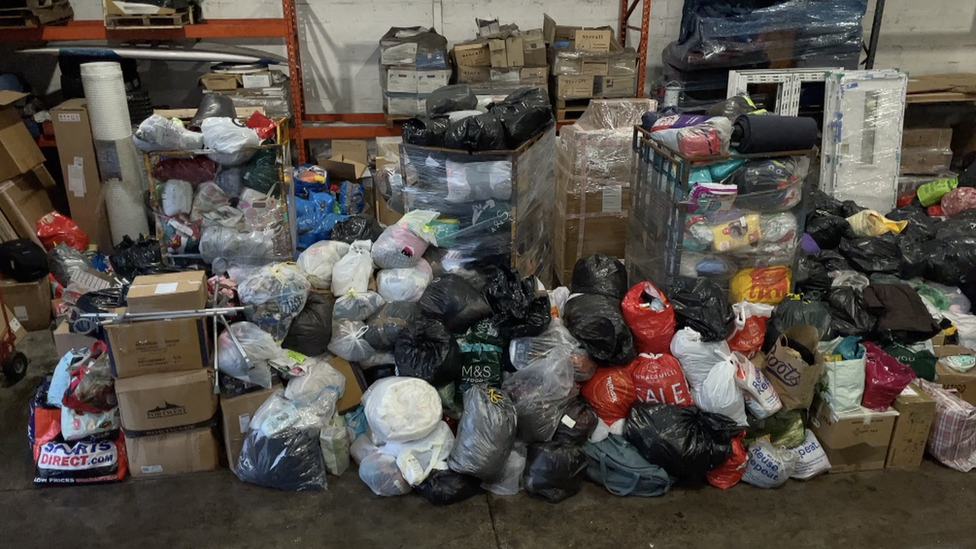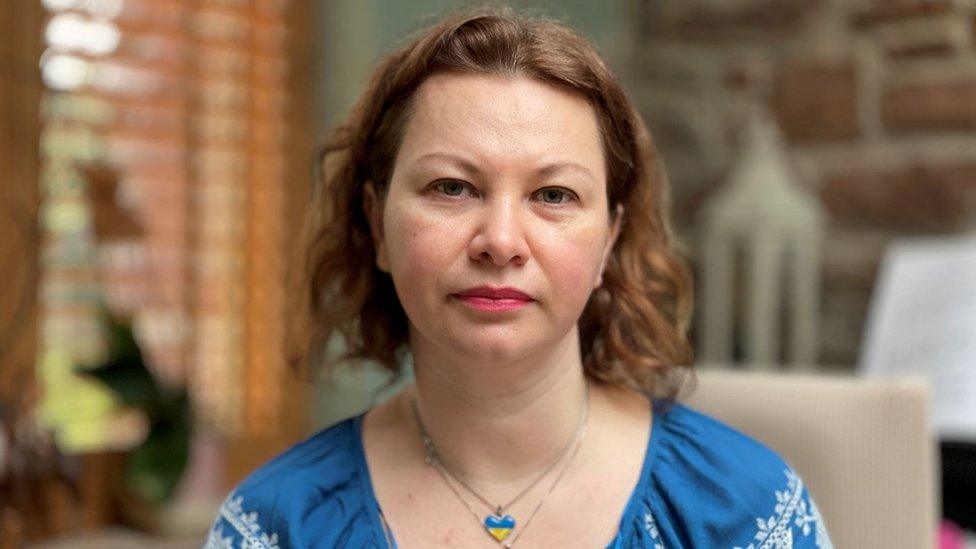Ukrainians adjust to Isle of Man life after fleeing war
- Published
Liuba Kot translates for fellow Ukrainians who have fled to the Isle of Man
A Ukrainian woman who fled to the Isle of Man following the Russian invasion has said working as a translator in Manx schools helps her "contribute to my people".
Liuba Kot, who arrived from Ternopil in March, said she felt a mixture of anger, sadness and grief about the war.
Dana Kolisnyk, who left Chernivtsi for Douglas in April, said it was hard to "carry on like nothing's happening".
Her family "puts all our efforts" into sending supplies home, she said.
Ms Kolisnyk decided to leave Ukraine to find a job to support her family because she could speak English.

Dana Kolisnyk and her mum Ruslana Vyshnevska from Ukraine now live in Douglas
Her aunt already lived on the island, and once she had secured a job in August in the island's financial sector she brought her mother and grandmother to safety too.
They now put "all of our effort to help our country" by buying cars with other friends and supporters to fill with supplies and send into the war zone, Ms Kolisnyk said.
She also lights candles and cuts down on using home appliances in solidarity with people in Ukraine who are experiencing electricity shortages.
"I feel like I'm there with them," she said.
While Ms Kolisnyk has been able to visit Ukraine, she said she wanted to return to live in her home country "to hug the people I love" but at the moment she and her family were too worried.

Ms Kot now lives with her boyfriend Max and translates for Ukrainian families in Manx schools
Ms Kot has moved in with her boyfriend Max's family in Foxdale who she had planned to visit before the war to meet them.
The travel tourist visa she had applied for arrived the day the conflict began on 24 February.
She has since been permitted to stay on the Isle of Man permanently and has become a bilingual education support officer to help Ukrainian children in Manx schools.
Ms Kot said she felt her job translating was a "great way... to help and contribute to my people", many of whom face language barriers when arriving on the island.
"It's just that odd mix of, I found my, I could say my career, but the circumstances of how I got there are terrible, and that feels very, I can't explain how that feels".

Why not follow BBC Isle of Man on Facebook, external and Twitter, external? You can also send story ideas to IsleofMan@bbc.co.uk, external
Related topics
- Published25 November 2022

- Published21 September 2022

- Published24 August 2022

- Published5 April 2022

- Published21 July 2022

- Published9 March 2022

- Published4 March 2022

- Published3 March 2022

- Published3 March 2022

- Published25 February 2022
